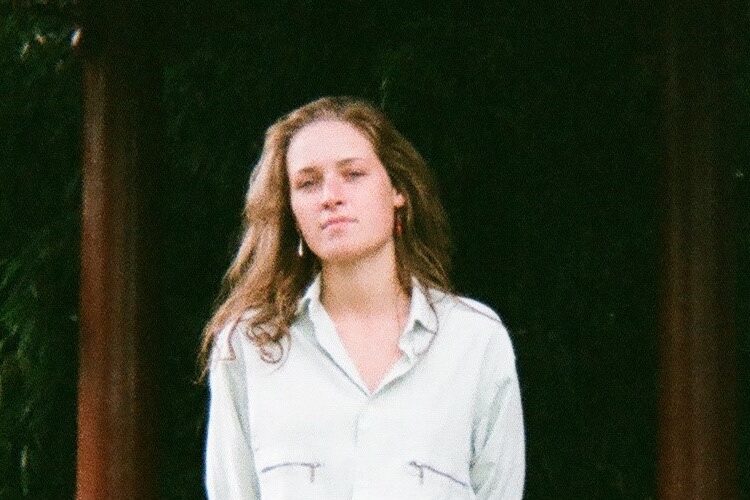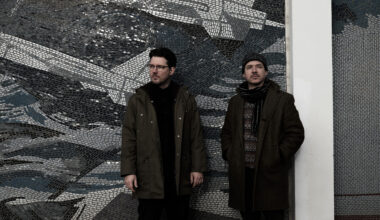Hildegarda (aka Agnese Menguzzato) is an Italian composer and musician based in Berlin.
Classically trained, she then started experimenting with electroacoustic compositions and electronics, seen as a timeless vehicle to reach a wider spectrum of aural possibilities. She often employs the auditory potential of her lute to create uncanny paths in the harmonic and tonal sequences of her work. Her constant sonic research reflects also her early fascination for polyphonic choir music from Renaissance and the Middle Ages. Hildegarda’s musical expression is deeply rooted in her childhood imagery and in the confront with nature, from which every human sentiment flows; having lived between Trentino Alps and Emilia Apennines, she’s driven to create sonic landscapes, in which she gathers and combines raw and digital sounds.
Her music laps various fields of application in media. She’s currently involved in a project on the sound perception in Japanese culture through Shinto rituals.
Hildegarda is March resident at the artistic development program Amplify Berlin at Acud Macht Neu.
FACTS:
1: Music
2: To love and be loved, ‘cause we know and see little.
3. Endless waters and spaces
QUESTIONS:
1. What is the biggest inspiration for your music?
I’d say everyday life, experiences. I’m moved by the need to investigate my feelings and what I care about in a precise instant: as a sort of witness, a record of my state in that moment and until that moment, to gently dig into yourself. Similar to a stream of consciousness, my first thought is to share it with everyone else, imagining people to share my music with; to know if there’s a common sense out there, a community of likeminded people, as a sort of pre-verbal experience based on sympathy. And then hopefully grow and evolve.
2. How and when did you get into making music?
I was lucky enough to grow up in a fertile environment for music, mostly because a lot of my parent’s friends were musicians, even though in my family nobody was. Now that I think of it I’d say I was raised in a musical way, if that makes sense. Especially thanks to my mother’s deep affection towards music, I was routed to it at a very young age. At 5 I started practicing the glockenspiel and singing in a children’s choir in the village I lived in, to furthermore approach classical music. At the age of 8, I began playing violin in the Conservatory till my late teens. That’s where I began to feel the urge to express myself beyond the structures studied until then. So I started composing brief piano parts on my keyboard and later discovered the infinite world of electronic music and the endless applications and capabilities of its nature.
3. What are 5 of your favourite albums of all time?
Tough question, there are so many. For now, the ones that popped into my mind are:
Nick Drake – Family Tree & Pink Moon
Gillian Welch – Hell Among The Yearlings
Joni Mitchell – Blue & Ladies of the Canyon
Oliver Coates – skins n slime
Jordi Savall – Balkan – Honey and Blood
4. What do you associate with Berlin?
Curiosity, in mostly all its forms.
5. What’s your favourite place in your town?
At the moment St. Elisabeth Kirsche in Mitte. Thanks to Amplify team, and not to mention the global situation as well, we had the opportunity to play and record a lot of music, alongside Yair Elezar Glotman and all the precious people from ACUD.
6. If there was no music in the world, what would you do instead?
Maybe I wouldn’t even be :’)
7. What was the last record/music you bought?
A record from Z. M. Dagar, an Indian Rudra veena player.
8. Who would you most like to collaborate with?
I think you have to be lucky, ‘cause I sense it’s like with friendship in a way; to come across someone you feel led to trust instantly, someone with whom you share similar patterns and visions since the beginning.
9. What was your best gig (as performer or spectator)?
If I have to choose one: Ben Frost at Labirinto della Masone in 2019 for Lost Festival.
10. How important is technology to your creative process?
Technology is the vessel for music to be developed and heard to some extent. It perpetuates music, potentially. I’d say that also playing an instrument is technology for some reasons.
11. Do you have siblings and how do they feel about your career/art?
Yes, I have a 20 years old sister; she thinks it takes courage to follow that path alongside a sort of innate drive to music in this case, but also arts in general. So for her this is quite a mystery but also a source of fascination, a beautiful way of looking at the world we know with a gaze on something else.
Photo © Lucrezia Ganazzoli


